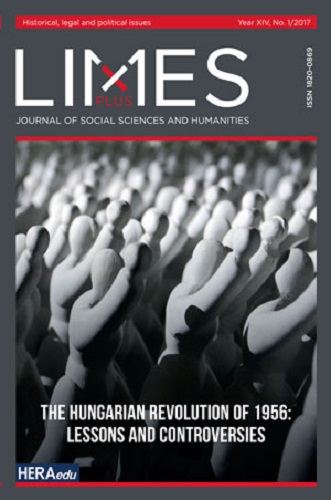Yugoslavia and the Hungarian Uprising of 1956: Dilemmas and Controversies
Yugoslavia and the Hungarian Uprising of 1956: Dilemmas and Controversies
Author(s): Nikola SamardžićSubject(s): Diplomatic history, Political history, International relations/trade
Published by: HESPERIAedu
Keywords: Hungarian Uprising; Yugoslavia; Josip Broz Tito; Imrae Nagy; Nikita Khrushchev
Summary/Abstract: The split-up of Yugoslavia with the Soviet Union from 1948 has encouraged centrifugal political forces in the Eastern Bloc. However, The Hungarian Uprising of 1956 was a serious temptation for The Yugoslav government. However, Yugoslav leader Josip Broz Tito although managed to seize the opportunity and redefine the status of Yugoslavia and his personal role in international relations. In the depths of the Yugoslav regime, there was enough understanding of the new approach to the Soviets dating from the previous year, and the cooperation in the suppression of the Hungarian Uprising. In one year, Tito met four times with Khrushchev. Apart from helping refugees and formal reactions, the West had no power to help Hungary to leave the Soviet orbit. The West remained inactive, and Yugoslavia silent, also during the suppression of the Prague Spring in 1968.
Journal: LIMESplus
- Issue Year: 2017
- Issue No: 1
- Page Range: 107-123
- Page Count: 17
- Language: English

